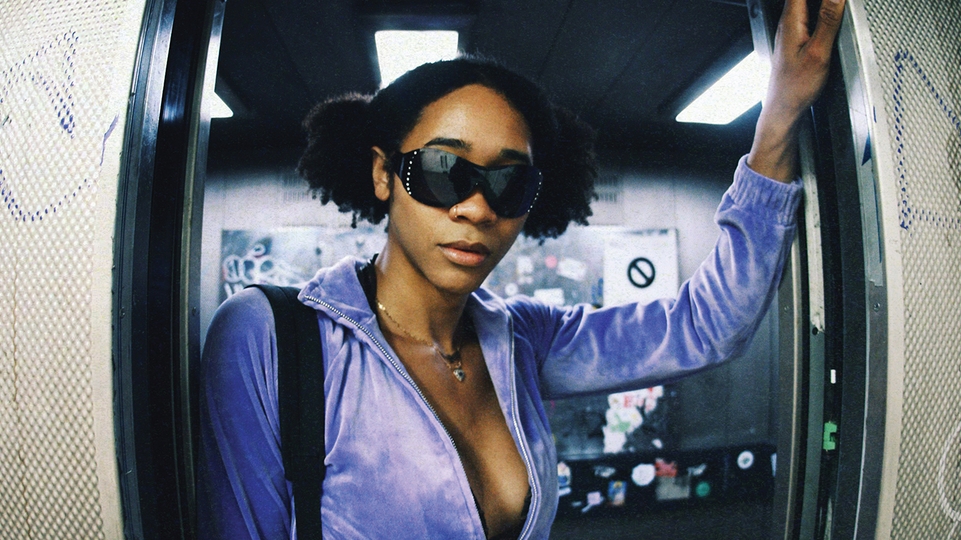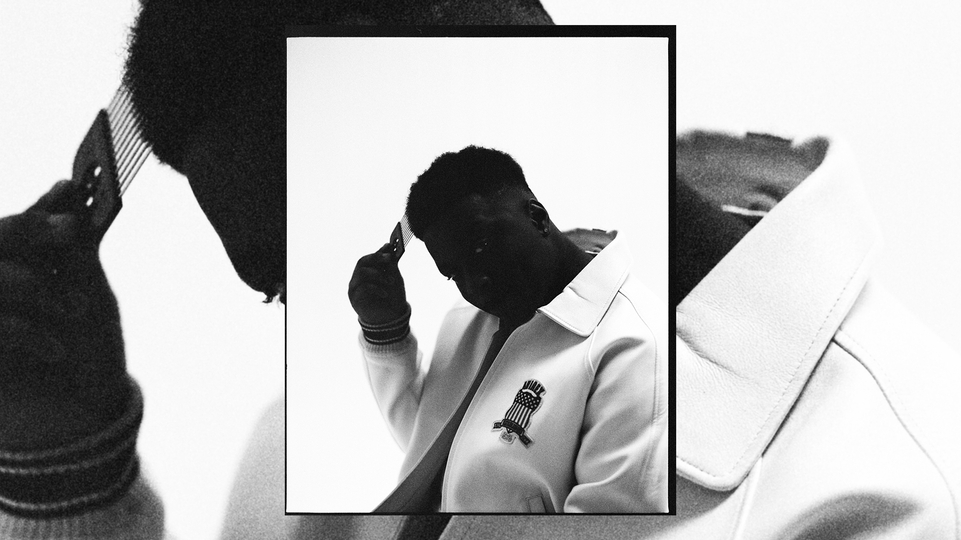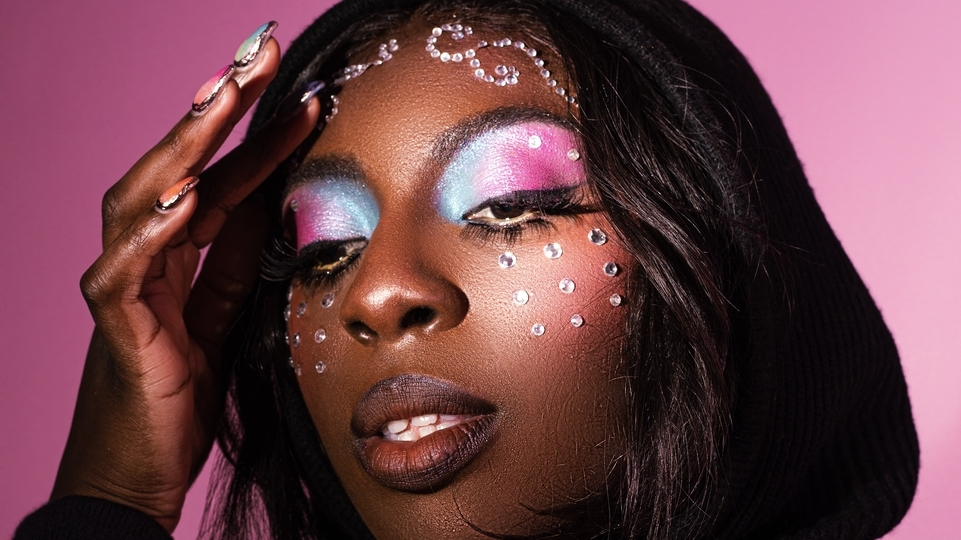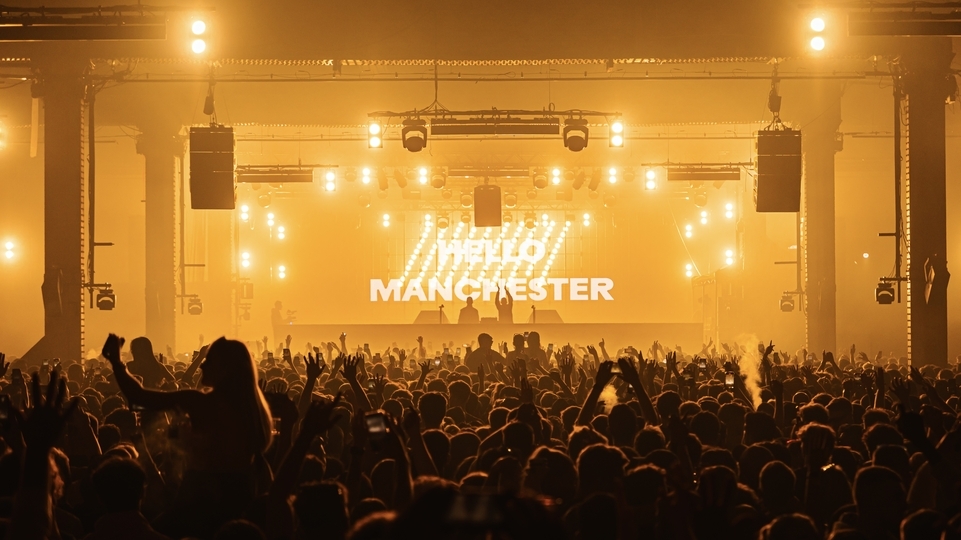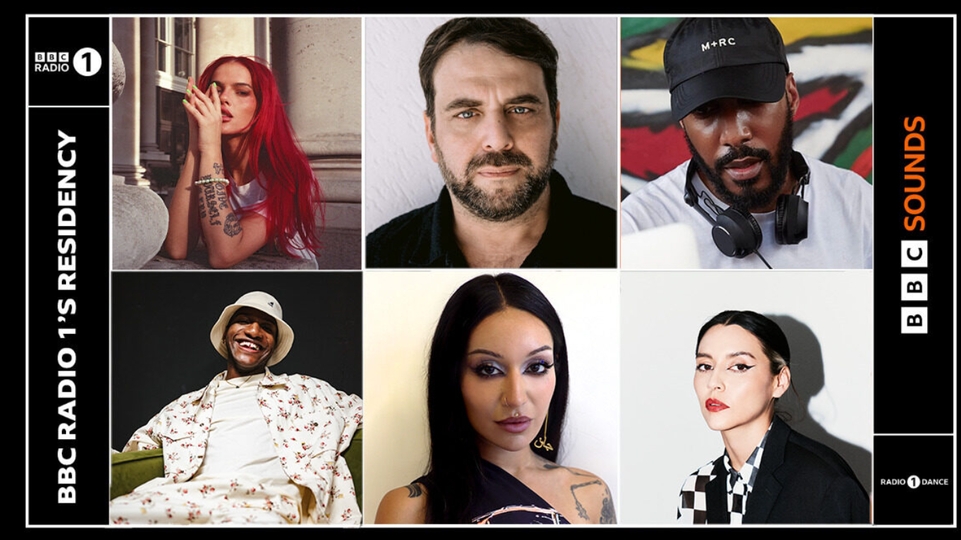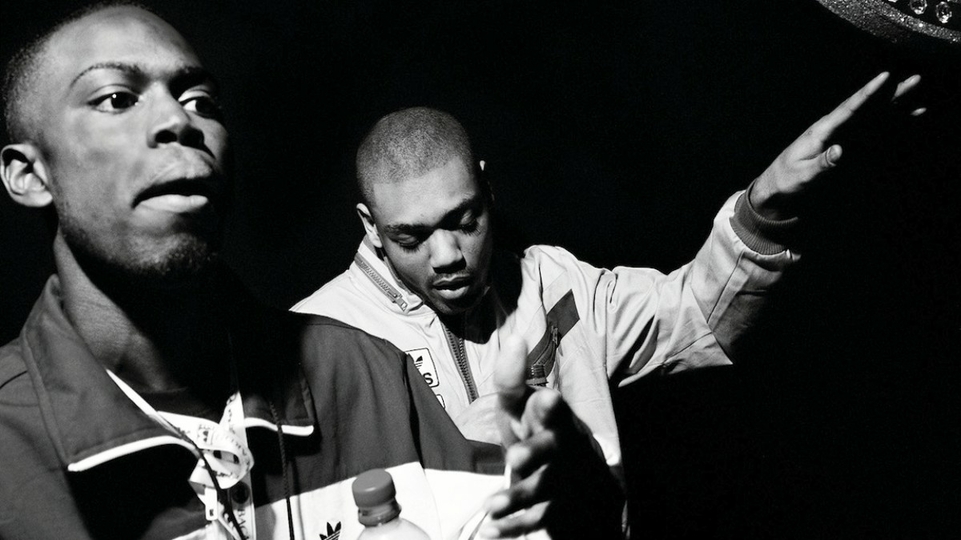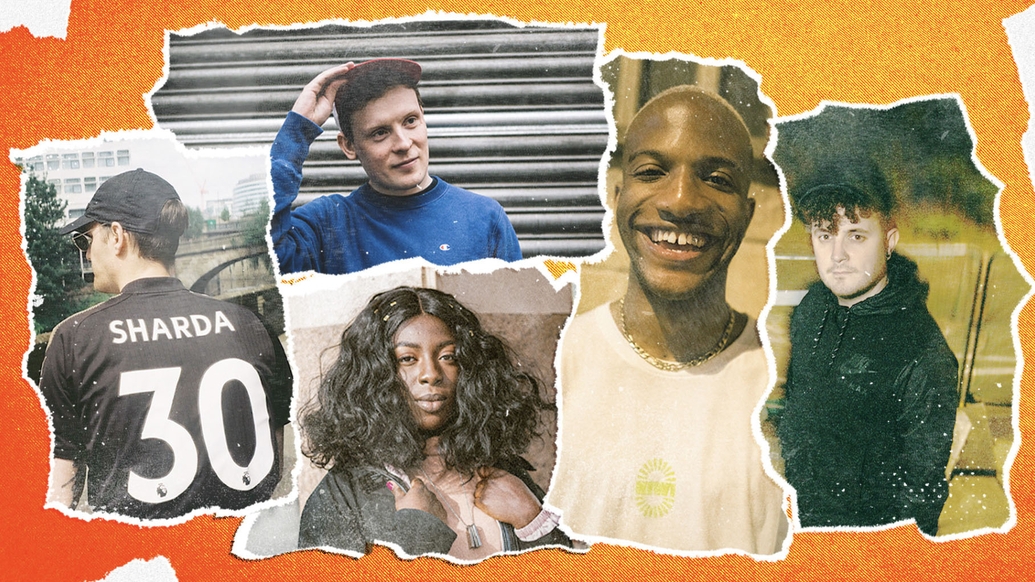
The new school of UKG
Across the UK, there's a bubbling scene of young producers and DJs, re-shaping garage for a new generation of ravers. DJ Mag speaks to some of the key players to find out more
“No matter how awful the vibe is, you can always stick a garage tune on and it’ll transform the room,” says Manchester producer and DJ Anz.
UK garage (UKG) emerged in the early ’90s, in part through DJ and promoter Matt Jam Lamont’s Happy Days: a South London afterparty at The Elephant & Castle pub, for ravers spilling out of Ministry of Sound; playing sped-up, imported US house records, by artists like Masters At Work. Then the sound splintered: UKG’s dark and dubby subgenre, two-step, was championed by pirate radio stations like Rinse FM, while mainstream clubs played out sugary vocal singles, by Artful Dodger and DJ Luck and MC Neat. By the turn of the millenium, the appetite for garage was huge: between January 2000 and December 2001, the Warner.ESP label released six volumes of the DJ EZ’s ‘Pure Garage’ CD compilations.
While much commercial UKG was led by caramel-smooth grooves and R&B vocals, a harder, faster style was pushed by London’s So Solid Crew and Pay As You Go Cartel. The mid ’00s saw an explosion of new club sounds, with grime, dubstep, funky, and bassline. Despite flashes of commercial success – in 2007, DJ EZ’s ‘Pure Garage: Rewind Back To The Old Skool’ compilation sold over 100,000 copies in 11 days – UKG’s cultural standing waned, stifled by nostalgia.
Recently, though, there’s been a wealth of young DJs and producers working to revitalise UKG and push it into new, unexpected territories. London producer and DJ Conducta runs his own label, Kiwi Records, which releases music from London’s Mind Of A Dragon and Manchester’s Sharda, among others. In Manchester, there’s a strong contingent of artists, including Finn, Anz, and the Swing Ting label-and-party crew, who have been flying the flag for UKG.
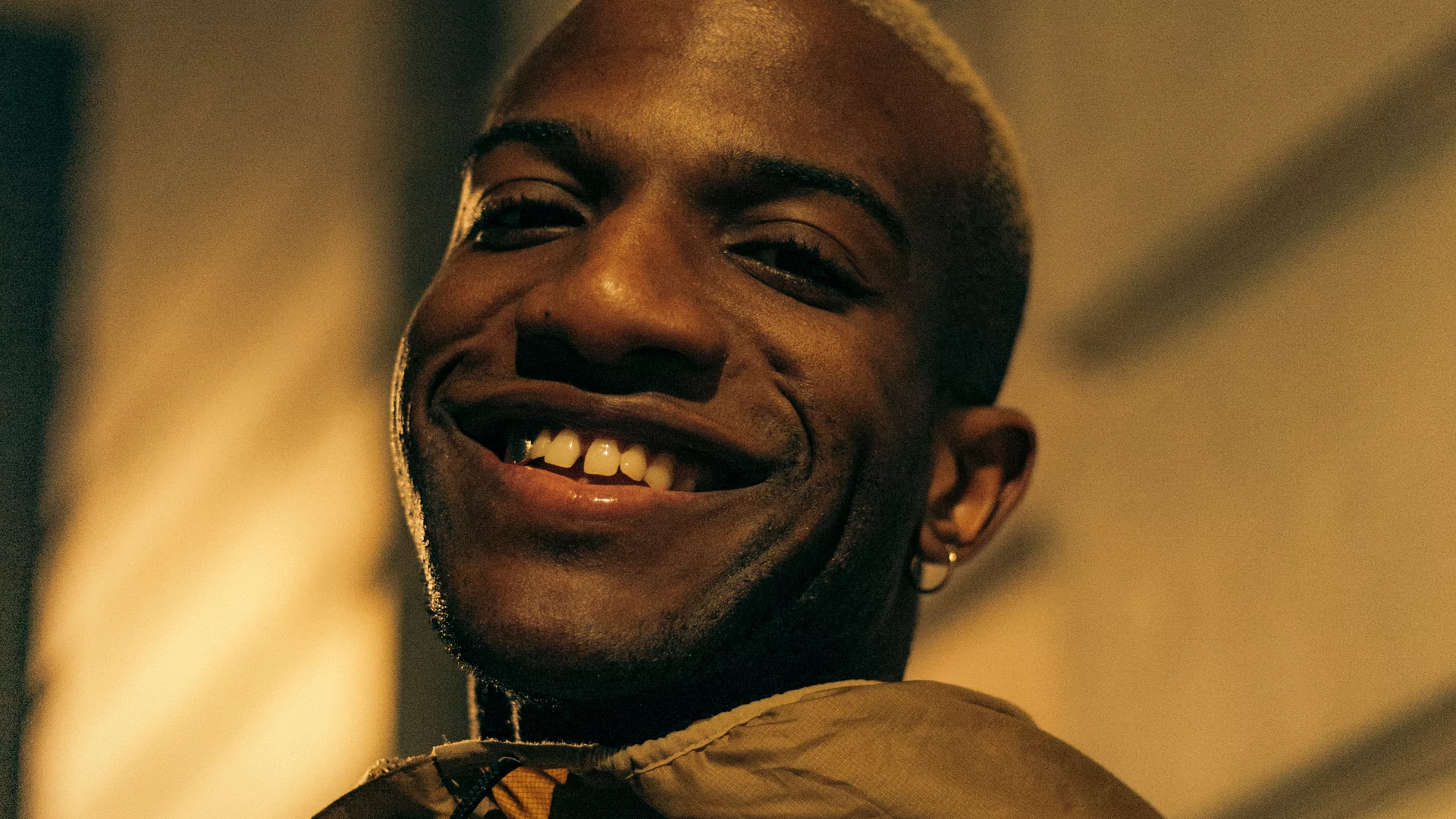

“There’s definitely a boom taking place,” says Swing Ting’s Ruben Platt. “There’s a bigger appetite for UK vocal music here [right now] than there has ever been.” Swing Ting’s basement parties play a riotous mix of dancehall, hip-hop, afro bashment, funky, and UKG. Although the crew have been playing UKG for a decade now, Platt credits a new generation in making it feel new. He names Conducta and the supergroup TQD (Royal T, DJ Q, and Flava D) as some of the key instigators.
“They are making garage that references two-step, but there’s a balance,” he says. “It has the original vibe, but there’s been an update in production techniques. It keeps a lot of things that I love about older garage – big vocals, big basslines, that ‘rough and smooth’ combination – but it’s moving it forward.” Conducta agrees. “It’s not rooted in nostalgia,” he says. “It’s about taking the best of what went before, but giving it a new twist and making it relevant to young ravers today.”
Along with Anz, Annabel Fraser, and Florentino, producer and DJ Finn played a joyous ‘Bass & Percs’ Boiler Room Session in Manchester this year. He emphasises that this new movement isn’t rooted in the past. “It’s been really exciting to see people putting out forward-facing, contemporary garage that doesn’t feel like a throwback,” he says. “It’s not pastiche at all. It’s young producers coming at it with a real fresh ear.”
Many of these producers can be heard on ‘The Kiwi Manifesto’, a free, 30-track mixtape that launched Kiwi Records this January. “The plan for the label was to mobilise a scene,” Conducta says. “The scene was quite divided before, and I wanted the Kiwi movement to create one.” The manifesto is “a call to arms,” featuring artists like Mind Of A Dragon, Sharda, Higgo, Bassboy, Jack Junior, and Sammy Virji.
In June, Conducta released another mixtape, KIWI KRUSH, featuring 32 new tracks from a growing collective of artists, with Anz, Movement, Smokey Bubblin B, and Tuff Culture amongst them. Other UK crews that chime with Conducta’s philsophy include Southampton’s FooR, Bristol’s 24 Hour Garage Girls, and Keep Hush, a “community-driven underground music platform.” The latter recently released the ‘100% Heat’ mixtape, spanning garage, bass, grime, and funky.
The sound has even broken into the charts this summer. Conducta co-wrote and produced West London rapper AJ Tracey’s latest single, ‘Ladbroke Grove’, which has spent 23 weeks (and counting) in the UK Singles Chart. It’s currently sitting at number 6, above new singles by Sam Smith and Lewis Capaldi. For Conducta, the success of ‘Ladbroke Grove’ is emblematic of where garage is, and where it can go. “I’ve always said that I’m bringing garage back, or want to move garage to the forefront, and I feel like this is me achieving that goal,” he says. “‘Ladbroke Grove’ is an actual garage tune, it’s not watered down. It’s the culmination of a lot of hard work, but I want this to be a springboard for a real resurgence.”
Mind Of A Dragon suggests that this new iteration of garage is linked to a wider, thriving UK scene. “The bump in garage has a lot to do with UK music in general growing in strength, whether it’s grime, drill, or R&B. It was only a matter of time until this momentum [meant that] garage would reappear on people’s radars.” What’s especially exciting about this resurgence is the artists’ genre-overlapping approach. “I don’t actually know how you would define garage now,” says bass producer and DJ Sammy Virji. “There are so many different strands [to it]. A lot of people might hear a garage track and say, ‘oh, this is house’.” He points to Alexandra Milne, Kobe JT, and Finn as young artists who missed the “golden age” of UKG, and are approaching it with cross-genre tastes that are illustrative of their generation.
For Sharda, it’s about respecting the history while avoiding mimikery. “I don’t think you should ever stare off into the distance, and become obsessed with future-this or nu skool-that, without understanding and appreciating what came before where you are now,” he insists. “The new stuff I’m hearing has the essence of a lot of old tunes, and that’s how a genre develops well - building on the framework of a sound, not disregarding it.”
Jack Junior, 21, has seen a growing appetite for these new sounds amongst his peers. “When I play old school UKG to friends that are my age, they think it sounds dated. But when I play them stuff by Mind Of A Dragon – tunes that sound so fresh and clean in the production, whilst retaining that old essence – it tickles them differently.” Uninhibited by older perceptions of club genres being in competition with each other, as grime and garage were styled by many in the early ’00s, these producers and DJs are weaving tropes from bassline, dubstep, funky, and grime into bumping garage grooves.
“There are many producers making all types of garage at the moment, and it’s amazing,” says Mind Of A Dragon. “It isn’t a limited genre. The more influences that you have to offer [to the sound], the better. Back in the day, you’d have bare ’90s R&B tunes being sampled – poor Brandy, she got rinsed – but now we have drill, new R&B, grime, and Afrobeats to jump on and twist up. Singers like Jorja Smith [with her hit 2018 collaboration with Birmingham producer Preditah, ‘On My Mind’, and ‘Ladbroke Grove’] are a perfect example of how the [young] voices of today sound amazing on garage.” Anz take a more panoramic view: that garage offers a much-needed tonic for the times. “It’s an infectious thing to add to a party,” she says. “There’s a lightness to garage, a pure energy that is very unpretentious. It’s levelling as a genre, a real mood-lifter.”


UKG remixes are also shifting perceptions and opening ears. Platt has been playing the Conducta remix of J Hus - ‘Did You See’ regularly at Swing Ting parties, and Junior feels that garage remixes create an extra genre overlap that boosts garage’s momentum, seeping into different scenes. “Urban culture has hit a high mark across the UK, and garage producers’ remixes of rap songs are going big. It’s offering an alternative perspective on what is already out there.”
This, again, was a deliberate move by Conducta. “Doing remixes was part of my plan to put garage in another context,” Conducta says. “People might never expect J Hus to do a garage tune, but to hear him in a garage context – and for it to still have that bit of grit – has opened people’s minds. It’s the same as when I did my GoldLink and Jorja Smith remixes. It’s all been part of the plan of building [garage] up.”
Tonally, there’s been a shift from the classic UKG sound. Some do prefer those silken, melodic vocal tracks – Jack Junior’s ‘Play It Again’ sample’s jazz singer Peggy Lee, over a tough, corkscrewing beat – this evolution has led to more challenging instrumental tracks being made. Sharda often cuts and pitch shifts vocal snippets until they’re as much a part of the beat as the lead melody, and his track ‘Peace & Love’ blends different, wonky basslines together, hurtling the sound into a new direction.
Anz playfully refers to this approach as “the Sharda-fication of garage,” which Sharda laughs at. “I’ve not heard that,” he beams. “I guess I’ve found a few ways of chopping up vocals – I try to use instruments like a vocal track.” He attributes this to his broad production tastes. “I’ve made grime, jungle, and bassline in the past, so there’s touches of them in there, too.” For Finn, who’s releasing a “no holds barred, straight-up garage track with a South Yorkshire legend” on Swing Ting’s label soon, UKG should be cherished. “In many ways, garage is the UK’s house music,” he says. “We should stand up as young producers and DJs and be clear about how important garage is to understanding the UK’s music legacy.”
So, are we on the verge of a full-blown UKG resurgence? “I don’t think garage has ever lost the potential to crossover again,” says Sharda. “It's so interwoven in the UK soundscape.” Platt would love to see it explode again – “‘Ladbroke Grove’ is a great signal that there is real potential for that kind of thing” – whilst Anz is all for the new, twisted evolution. “I’m really excited by the stuff I’m hearing. I can’t wait to see how many more producers take it and run with it, [maybe even] to a point where it ends up a completely new genre in five years.”
“It seems like now is the time,” says Conducta. “This has been bubbling for a while, but the mobilisation of it is a lot more visible. People are making it en masse and see it as a viable option. Garage has always meant something to people, but it seems a bit more profound now. Anything I ever do in a mainstream bracket will remain garage. I won’t go chasing a hit; I will get garage back in the charts where I want it to be. That’s always been my aim. I’m not doing this for myself, I’m doing it for garage.”
